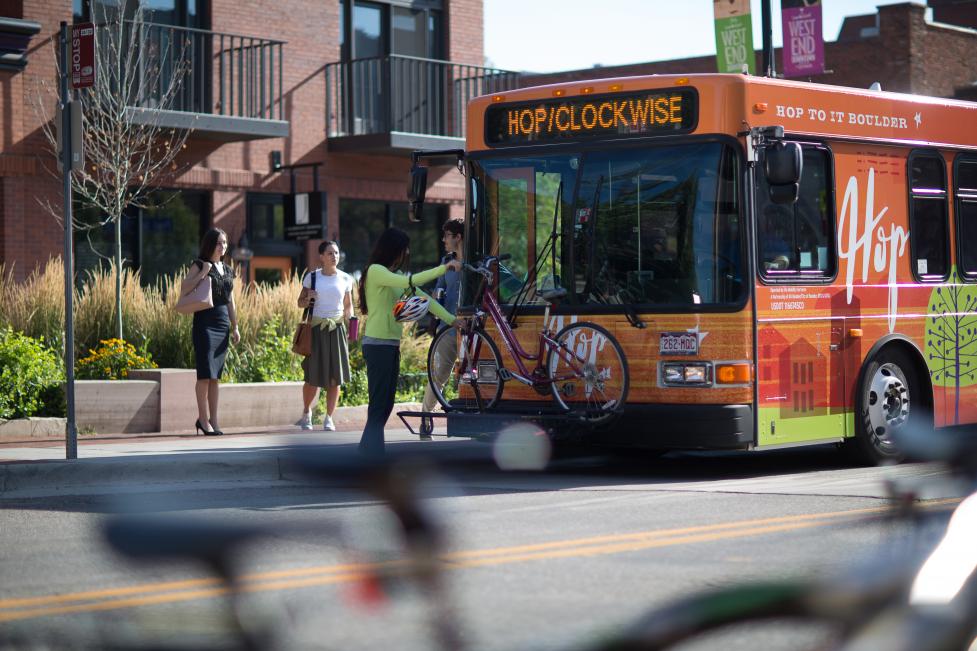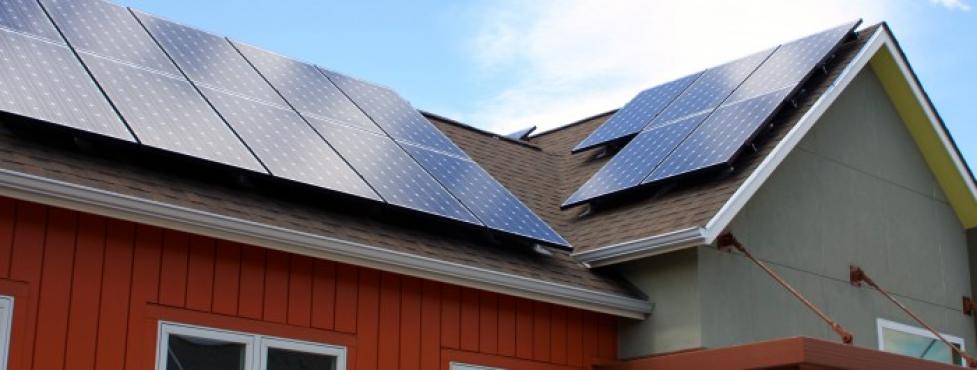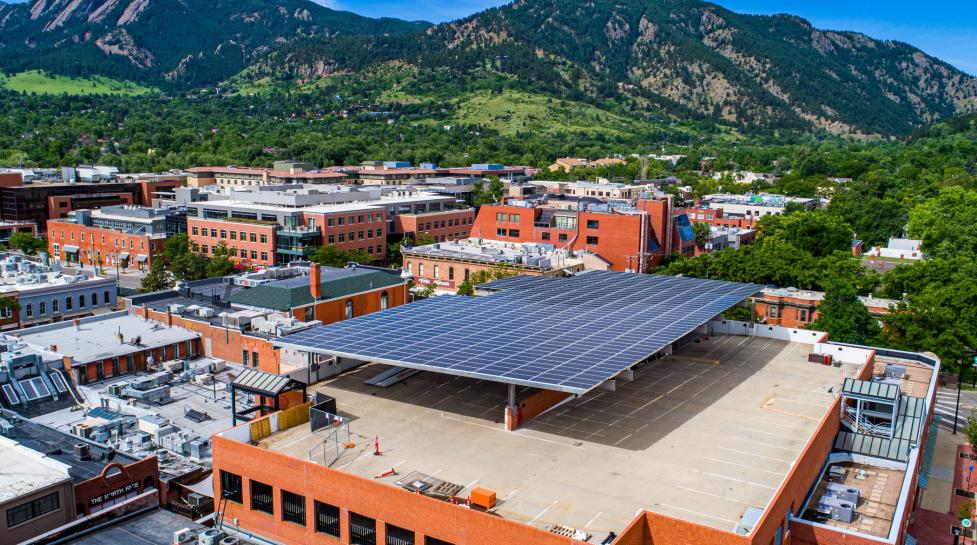Looking back on the accomplishments of the CAP Tax
Overview
Much of the city’s climate work – from energy efficiency rebates to solar gardens – is funded by the Climate Action Plan (CAP) Tax. Since 2007, the Boulder community has successfully supported climate work by providing direct funding to the city.
In 2022, City Council and voters will consider changes to climate funding in Boulder. Let’s look back at some of the climate achievements made possible by the community’s investment.
Climate Policy Reform
In 2016, the city and partners founded Colorado Communities for Climate Action (CC4CA), a coalition of 40 local governments across the state that advocate for stronger climate policy.
In 2021, CC4CA contributed to 42 state-wide bills that expand access to renewable energy, ban single-use plastic bags, limit industrial greenhouse gas emissions and more.
Strengthening Community Resilience
The city helped Boulder Housing Partners (BHP) set up a solar battery backup system that supplies power during widespread outages. Now, the BHP headquarters serves as a power center during emergencies, making the city stronger when faced with climate disasters and other crises.
CAP Tax dollars supported the development of a local, self-sufficient energy system for Via Mobility, a transportation services company that operates the city’s HOP electric buses and other community vehicles.

The Boulder HOP bus
Improved Energy Efficiency
Two million dollars in residential rebates saved homeowners money and reduced their carbon footprint. Nearly 5,000 homes have been upgraded with renewable heating and cooling, and energy efficiency technology through EnergySmart services.
More than 7,000 residential rental units have been upgraded to meet the city’s SmartRegs energy efficiency requirements, lowering energy bills for renters and property owners.
Investments in energy rebates saved energy, decreased carbon emissions and expanded the use of solar power in commercial buildings. More than 1,200 businesses have shifted to electric heating, replaced outdated lighting and performed other equipment upgrades.
Improvements in building performance have made large commercial buildings, the city’s greatest energy users, more efficient. The tax has also supported education for business owners on savings opportunities for more than 400 commercial buildings.
Expanded Solar
The tax funded solar programs that save Boulder residents with low incomes as much as $400 a year. This includes the Ponderosa Solar Garden, the first city-owned solar garden in the country dedicated to low-income community members. The city also awarded $1 million in solar grants to nonprofits and low-to-moderate income-qualified residents. Grant money was used to install solar electric and thermal systems in homes and buildings owned by nonprofits.

Cleaner Transportation
CAP tax dollars expanded city-wide access to electric vehicle charging and helped electrify the city’s public transit system. The city now offers 48 public electric vehicle (EV) charging stations and downtown access to EV car sharing.
The tax also funded the launch of the city’s vehicle-to-building pilot project, the first of its kind in the state. The project saved the city thousands of dollars a year in utility costs.
Innovation
More than half a million dollars was awarded to 10 energy projects through the Boulder Energy Challenge. The projects focused on innovative approaches to clean transportation, renewables, energy efficiency and storage.
Partnerships
The tax supported city partnerships with several environmental groups including the Building Electrification Institute, Carbon Neutral Cities Alliance and Climate Justice Collaborative.
Get Involved
- City Council will discuss changes to the city’s climate funding on Feb. 22. Watch the meeting on Boulder8 TV.
- Stay tuned for upcoming community engagement opportunities after the council meeting.
- Participate in our community audio collage by recording your vision for future climate action.
